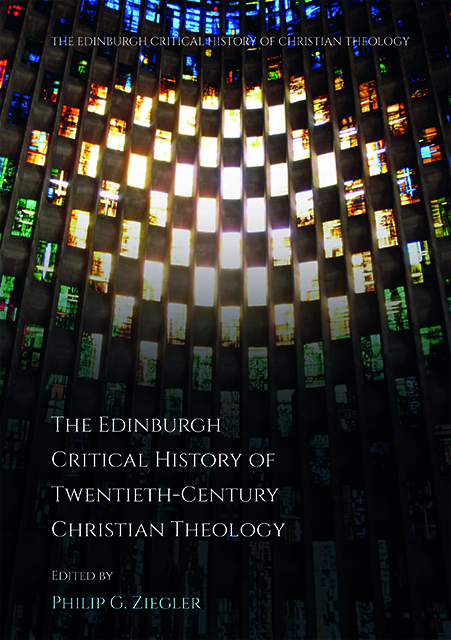Book contents
- Frontmatter
- List of Contents
- Notes on Contributors
- Editor's Introduction
- 1 Modern Theology in a Scientific, Historical Age
- 2 Tradition and Innovation
- 3 Scripture and Criticism
- 4 Reason, Method, System
- 5 Catholicism and Ecumenism
- 6 Fundamentalism and Evangelicalism
- 7 Synagogue, Sho’ah and State
- 8 Religion(s)
- 9 God
- 10 Spirit
- 11 Christ
- 12 Liberation and Freedom
- 13 The Secular – The Political: Augustine and Political Augustinianism in Twentieth-Century Political Theology
- 14 Globalisation after Empires: World Christianity and the Theological De-centring of Europe
- 15 War and Peace
- 16 Race and Black Theology
- 17 Sex and Gender
- 18 Hope
- Index
16 - Race and Black Theology
Published online by Cambridge University Press: 14 July 2023
- Frontmatter
- List of Contents
- Notes on Contributors
- Editor's Introduction
- 1 Modern Theology in a Scientific, Historical Age
- 2 Tradition and Innovation
- 3 Scripture and Criticism
- 4 Reason, Method, System
- 5 Catholicism and Ecumenism
- 6 Fundamentalism and Evangelicalism
- 7 Synagogue, Sho’ah and State
- 8 Religion(s)
- 9 God
- 10 Spirit
- 11 Christ
- 12 Liberation and Freedom
- 13 The Secular – The Political: Augustine and Political Augustinianism in Twentieth-Century Political Theology
- 14 Globalisation after Empires: World Christianity and the Theological De-centring of Europe
- 15 War and Peace
- 16 Race and Black Theology
- 17 Sex and Gender
- 18 Hope
- Index
Summary
Introduction
In his 1903 book The Souls of Black Folk, the sociologist, historian and activist W. E. B. DuBois begins his analysis of Black life in the United States by interrogating his own experiences with curious white people. Beneath their concern with the conditions facing Black people, DuBois detects a lurking, unacknowledged question: ‘How does it feel to be a problem?’ Through striking narratives and deep analysis, DuBois gives voice to the struggles and strivings of Black people. But DuBois does more than this. Instead of simply answering their questions, DuBois takes up the role of questioner, interrogating their tacit presuppositions that Black people represent a problem to be solved or an anomaly in want of an explanation. In effect, the structure and tone of his work asks whites about their problems. How does it feel to make Black people a problem? What half-truths – and complete falsehoods – does white supremacy require to continue the degradation of Black peoples? Are American and European whites ignorant of their whiteness as it is performed on the world stage where proclamations of freedom mask militaristic and colonial aspirations to mastery?
While his writings are suffused with religious imagery and references, DuBois was not a theologian. Nevertheless, his example is instructive when we look at the paths followed by Christian thinkers across the twentieth century. In that century theologians and ethicists repeatedly plumbed the depths of racialised existence to draw out critical insights and resources for thinking, speaking and acting in response to Christian talk about God. They asked, and continue to ask, how the construction of ‘whiteness’, tied to projects of white supremacy and anti-Black racism, debases and destroys Christian thought and practice.
In this chapter I address developments in the tradition of Black theology, focused on figures in the North American context. Because there already exists a wealth of resources for those wanting an introduction to the history and ideas within Black theology, and keeping with the goal of this volume to reconsider figures anew and to explore innovative and critical angles, what follows is largely a critical conversation with challenges and opportunities presented by the treatment of race within Black theology. I argue that Black theology unites theological and ethical modes of enquiry in ways that provide a contextual account of theology wherein acknowledgement of context is more than a trivial acknowledgement of perspective.
- Type
- Chapter
- Information
- Publisher: Edinburgh University PressPrint publication year: 2022



